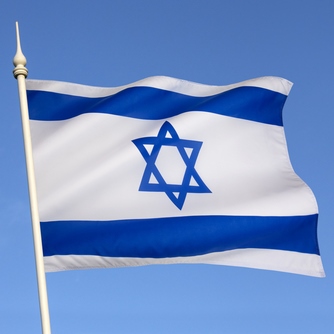
News

Holocaust survivor dreams of a Jerusalem observatory tower
MIRAH LANGER
“You look around at the panoramic view: from the Temple Mount, you see the Dead Sea. To the south, you can see Hebron and Bethlehem, places with historical resonance. Then, you see the Herodium. When you look to the north, you see Jericho, a town almost 10 000 years old. Everything is history around you.
“The idea came to me that this unique place should be shared with the rest of the world.”
Fliss took inspiration from the Latin roots of the name of the site – “scopus” meaning “look out” – and came up with the idea of building an observatory tower that he believes would attract mass tourism.
It is a dream that he has carried over five decades, and one that this civil structural engineer is determined to turn into reality.
In what he terms his “grand vision”, the tower would be a minimum of 100m tall, and would extend from a visitors’ centre at the base, to six glass lifts which would ascend slowly, revealing more and more of the Jerusalem view.
There would be glass-enclosed and open-air decks, including one that would have telescopes through which tourists could view sites between 50km to 100km away, including Tel Aviv or Masada.
Fliss envisages special viewings at particular times:
“You would have the sunrise from the Dead Sea over the desert. The sunset would be filled with the colours of Jerusalem: gold, copper and light.”
“To have shacharit, the morning prayer, from the observatory…” marvels Fliss.
He cites former British Prime Minister Benjamin Disraeli’s description of Jerusalem as encapsulating the history of heaven and earth.
The city’s centrality to history makes the observatory practically viable as its appeal would extend across religions and cultures, Fliss says.
“In ancient and medieval times, Jerusalem was called the centre of the world, where the three continents and religions came together. This should revive Jerusalem as the centre of the world.”
Ideally, Fliss would like the observatory to be but just one component of an extended project celebrating the heritage of Jerusalem. Other elements would be a memorial to Albert Einstein, who has close ties to the Hebrew University on whose property the tower would be built.
In addition, Fliss aspires to create a museum which would honour the disproportionally large contribution Jews have made in various aspects of society, including Nobel Prize winners.
Logistically, he has crunched the numbers and done extensive research. He estimates that the tower would cost between $40 million (R573 million) to $60 million (R860 million), and take about two years to build.
While Jerusalem has about 3.5 million tourists a year, Paris has more than 30 million.
Paris has the Eiffel Tower and New York the Empire State Building. The Mount Scopus tower, designed to host about 400 people an hour, could attract similar numbers, he believes.
“This is the idea… but for it to happen, a small miracle is needed,” Fliss suggests with a smile. “We are now focused on finding a Zionist billionaire!”
“Israel has restored human dignity to Jews. People who are born free, not like me, take this freedom for granted.”
“This tower would be a symbol of the renaissance of the Jewish nation.”




